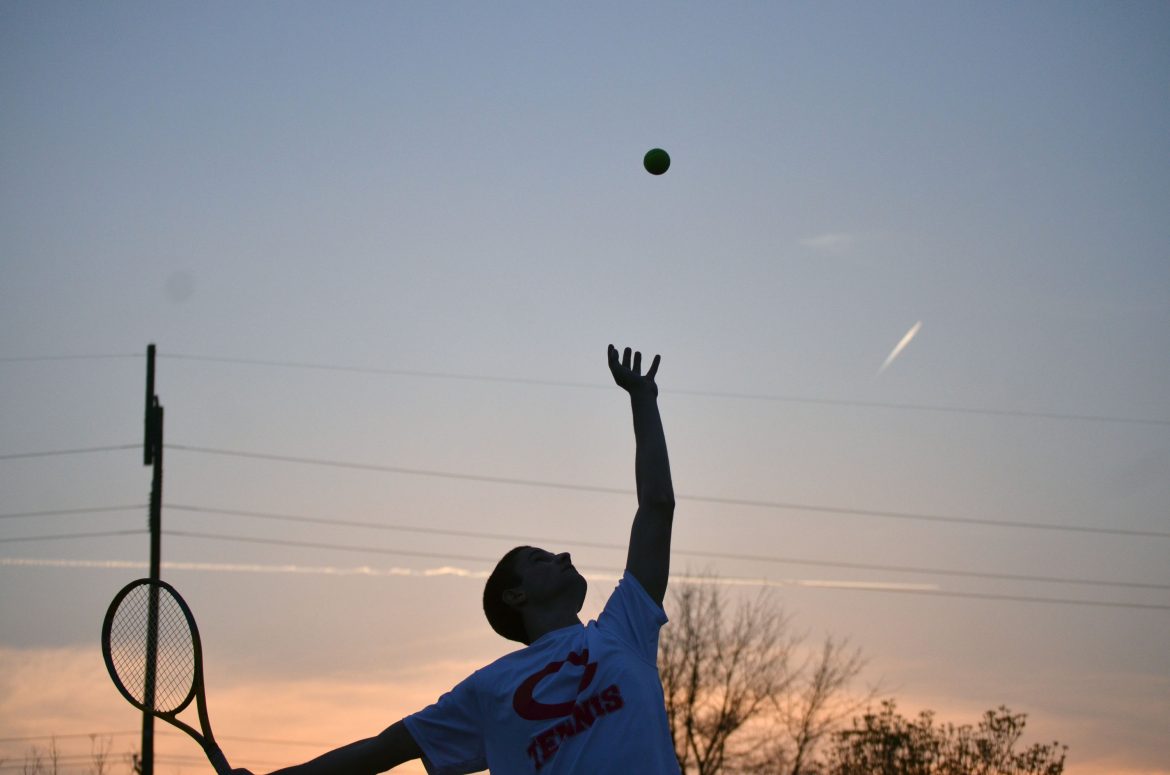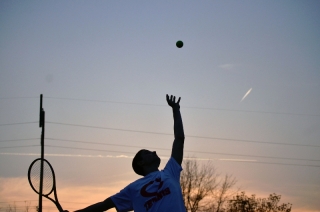
By JENNY ALPAUGH – Print Managing Editor
A love of tennis can begin at any age. After the concepts and rules of the game are learned, a player can continue to participate in the game for the entirety of their lives according to Robin Stevens, president of the Clarke-Oconee Tennis Association, a non-profit organization that operates leagues for all ages of tennis players.
“Children as young as five or six can start enjoying tennis and continue to enjoy the game into their 90s,” Stevens said. “Tennis is one of the very few sports that both men and women can and do continue to play throughout their adulthood, even into their senior years.”
Clarke Central High School senior doubles tennis player Antwon Callaway knew little about the sport when he tried out for the CCHS tennis team during the 2010-11 school year.
“(I knew tennis involved) a little light green ball and a tennis racket hitting it back and forth,” Callaway said. “Really, I didn’t know anything.”
Although his knowledge was minimal when he first began the sport in Jan. 2011, Callaway was quickly able to grasp the concepts and rules of tennis, in which a player must be able to serve and return the ball with either the backhand or forehand stroke with the ultimate goal of earning four points before the opponent does.
“I would say (tennis) was easy (to learn). All you have to do is keep the ball in the lines,” Callaway said.
While Calloway made a quick transition to tennis, Paul Allen, Head Teaching Pro of Tennis for Life, Inc. at Bishop Park, feels the sport can be difficult for newcomers. Allen teaches the basics of tennis to players as young as six years old and also works with players in their eighties.
“Tennis is really hard. It is really a tough sport to learn and I think kids need some success right away,” Allen said. “They don’t need a ton, but they need some success right away to want to stick with it.”
The idea of sticking with the sport is important to both Allen and CCHS social studies department teacher and head tennis coach Stephen Hinson.
“The most I can do is get them to truly appreciate and enjoy the game,” Hinson said. “One thing I really like about coaching is bringing kids in who don’t have much experience, (because) usually, when people start playing tennis they never really stop.”
According to Allen, the benefits of playing tennis are numerous and are an incentive for lifelong participation.
“(Tennis) is cardiovascular exercise and it is great for your whole muscular system,” Allen said. “It is also good for your mental health to be thinking and using your brain and, for a lot of people, it is very beneficial socially.”
The social aspects and health benefits are what keep people playing throughout their lives according to Allen.
“We have many people that I teach that are in their 80s, that are still playing tennis two (or) three times a week,” Allen said. “It’s one of the only sports out there that you can say that about.”

